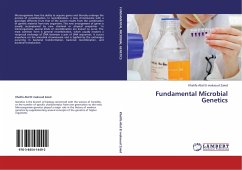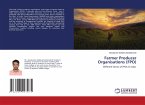Microorganisms have the ability to acquire genes and thereby undergo the process of recombination. In recombination, a new chromosome with a genotype different from that of the parent results from the combination of genetic material from two organisms. This new arrangement of genes is usually accompanied by new chemical or physical properties . In microorganisms, several kinds of recombination are known to occur. The most common form is general recombination, which usually involves a reciprocal exchange of DNA between a pair of DNA sequences. It occurs anywhere on the microbial chromosome and is typified by the exchanges occurring in bacterial transformation, bacterial recombination, and bacterial transduction.
Bitte wählen Sie Ihr Anliegen aus.
Rechnungen
Retourenschein anfordern
Bestellstatus
Storno








